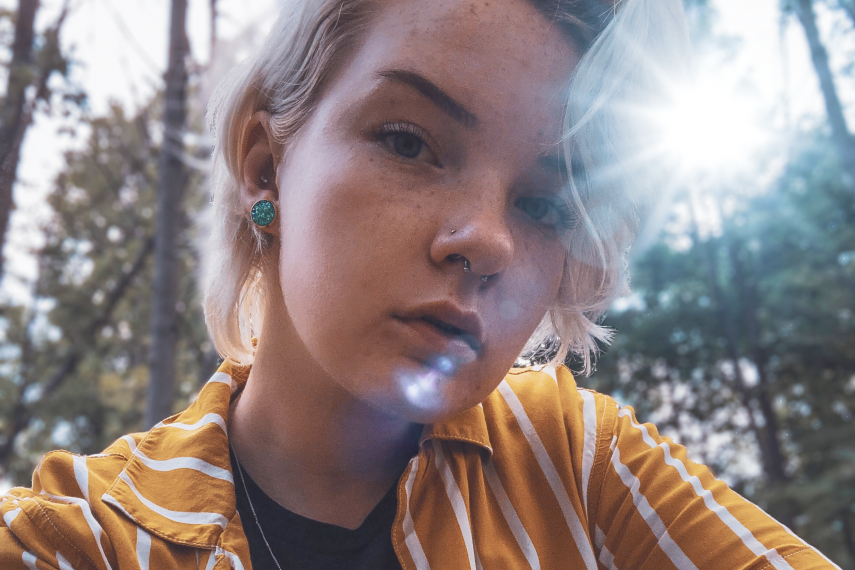International Development Student In the Pursuit of Social Justice

Justice. Our innate desire for justice reaches to the core of what it means to be human. We have a natural, guttural reaction to injustice – especially when it is aimed in our direction – and yet, we live in a world that is filled with injustice.
Social justice is a term that has been defined and redefined. It is sometimes bandied about or overused like the latest buzzword but the importance of social justice – at its root, access to the same rights and resources for all – cannot be overstated. The United Nations calls social justice “an underlying principle for peaceful and prosperous coexistence with and among nations.” In other words, world peace can only happen through the pursuit of social justice.
The International Development Studies program is just one of the programs at the University of Guelph that helps students better understand issues of social inequality and looks at ways to pursue social justice. Its students are encouraged to get involved in activities which will broaden their understanding of the issues and do what they can to make change happen.
We had the opportunity to speak with one-such student, Emily Kerr. Emily is a fourth-year student in the International Development program, specializing in political economy. Emily is also the president and co-founder of JAYU x Guelph, the Guelph chapter of an organization that uses art to advocate for human rights. She is also an executive member of the International Development Society and works as a peer helper within the International Development program.
Hi, Emily. Thanks for taking the time to speak with us about such an important subject as social justice. What led to your interest in activism and social justice issues?
When I was in grade four or five, one of my teachers had someone from a charitable organization come and give a presentation on sweatshops and poverty. That’s what piqued my interest. I thought, “This isn’t right!” That was the spark, that feeling that some sort of change needs to happen. From there I started doing fundraising. I organized an annual marathon; the Marathon of Miracles (laughs), such a terrible name looking back on it now, but when I was in grade five, I thought it was a great idea. And I was really just always advocating for social justice issues, especially when it came to education about issues.
So the International Development program was a natural fit.
Actually no, in high school my goals kind of changed and I ended up taking chemistry my first year of University. But then I took the first-year elective IDEV 1000. The professor was amazing and the content was amazing. I was so motivated to go to class and I thought, I really need to explore my options in this degree. That was my launchpad for doing work related to social justice.

Who taught that class?
"Steffi Hamann! I love her, love her. She is amazing. I really admire her work and her drive as a professor. She is deeply invested in her students and the work she does is so, so important. She was really the spark that started it all back up for me."
So, what does social justice mean to you?
That is such a hard question to answer. It is a word that is often conflated and used out of context, but to me social justice really means within cultural differences and within a community – even a global community – caring for one another and wanting a life for one another that is worth living. Of course, that looks very different for different people. It is giving people the power to choose what a worthwhile life looks like to them.
How has your time in the International Development program helped expand your understanding of social justice?
The program has helped me see that I am just one part of the puzzle. I have a particular privilege that allows me to look at the world in a certain way, but that doesn’t make my perspective right or better. Also, the program has recently added a Canadian development specialization, and I think that it is very timely that we have done that. When we think of International Development, we think of anywhere but here – as if Canada is already good enough. But it is really evident that we have a lot of work to do, especially in terms of Indigenous empowerment and Indigenous autonomy.
Can you tell me a little about the work you do with JAYU x Guelph?
JAYU is an organization that provides programming and events for youth and young adults in the GTA (Greater Toronto Area). And, basically, it is about exploring youth stories through photography, through collaging, and through film. For example, they have a human rights film festival every year. Essentially what we try to do is emulate what JAYU does in a more student relevant context. We focus our events and programming on campus. This semester we are running a program with the Guelph Black Students association. It is a poetry program for BIPOC students. We have a six-week workshop where students are paired with a professional poet and are given the skills and prompts to build a portfolio of poetry about their own BIPOC experiences. Our whole purpose is to open up discussion about issues that are happening globally but also on campus. We want to make JAYU the place where students can go to learn about human rights issues and/or express their own experiences. We have a student run blog and podcast as well that deals with social justice and human rights issues.
The UN World Day of Social Justice this year has for its theme: A Call for Social Justice in the Digital Economy. The consequences of COVID-19 have laid bare old inequalities and brought new ones to the fore. How has the pandemic affected your social justice work?
Literally the day we were supposed to hold our first event for JAYU x Guelph, the lockdown started (laughs). But COVID now comes up in almost every one of my conversations. It has fundamentally changed everything we do now. One thing that has come about because of COVID is the reliance on social media to find sources and discuss issues in our world. I never used to be that active on my Instagram, but you can see that after the George Floyd murder and the Black Lives Matter movement, my social media posting and engagement just blew up. That paired with the fact that now all of our advocacy efforts are virtual, it means that an inevitable part of advocacy is now figuring out how to put your platform online and make it accessible, relevant and engaging.
Now here is a loaded question: If you could solve one problem in the world, what would it be?
I know the obvious answer is something like world-peace or end gender-based violence, but I think that if I could solve one problem in the world, it would be the issue of empathy – the issue of having people care. I believe that a lot of social justice issues could be tackled if we could just empathize with each other and really understand that not all of our experiences are the same and not make the assumption that they are. I think in development today, we are moving past the idea that there is one solution for everything. Part of that is because we are able to understand that everyone experiences everything differently. A lot of issues could be fixed if we could think of it happening to us or our mother or our brother. So yeah, empathy; getting people to care and giving them a sense of “love thy neighbour.” But you know, in a development sense.
Well it was very nice to talk to you today, Emily. Thank you very much for taking the time.
My pleasure.